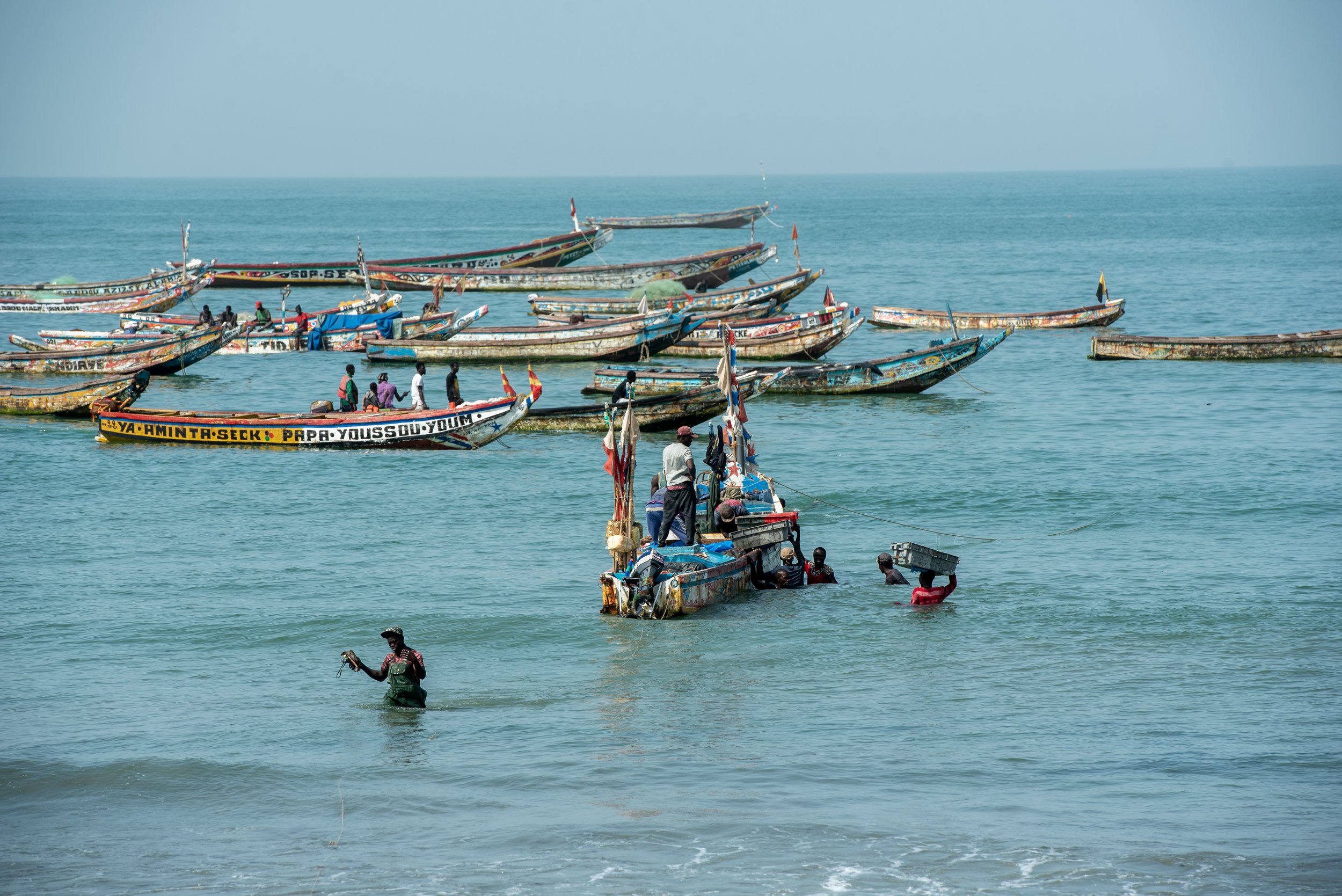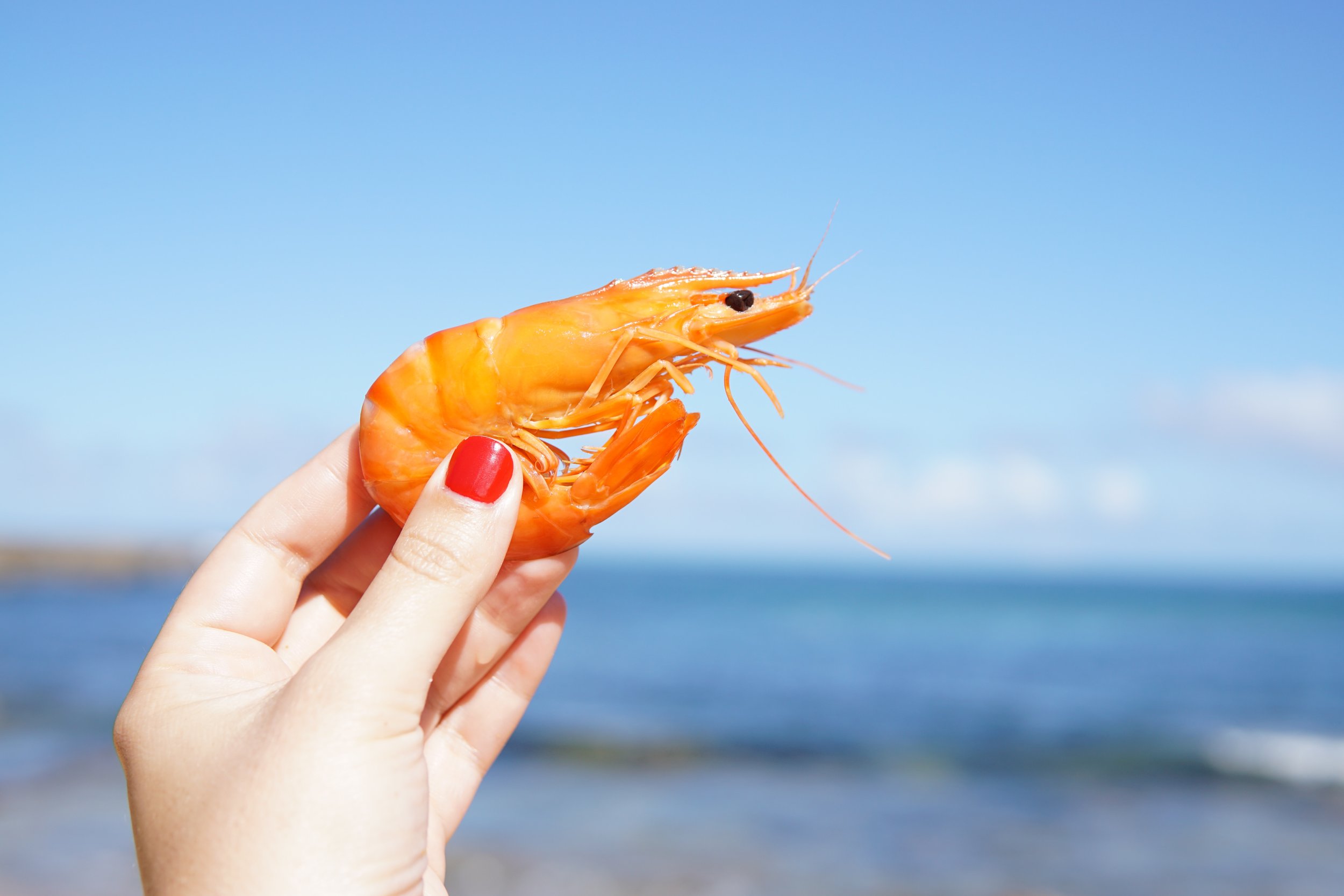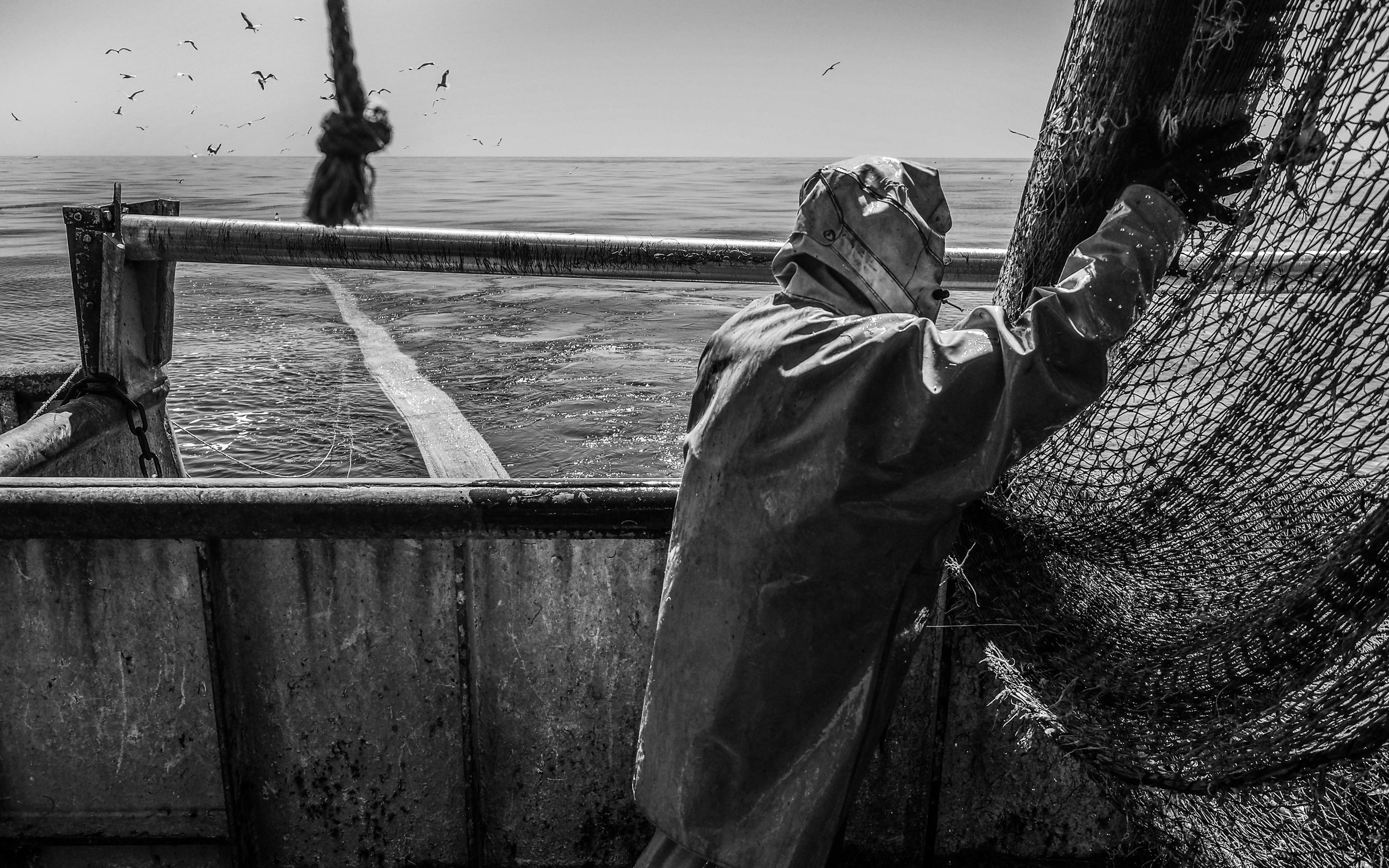OUR PUBLICATIONS
OUR POLICY BRIEFS
As the European Commission launches a campaign to promote the consumption of EU aquaculture products, several NGOs warn of worrying developments in the aquaculture sector and recall that some forms of aquaculture are harmful and impact the livelihoods of small-scale fishing communities across the world.
Hand in hand with financial giants, environmental NGOs wield increasing influence over natural resource management in debtor nations, undermining their sovereignty. The author warns against the rising financialization of conservation and calls for safeguarding the rights of local populations from the expanding influence of US financial interests.
The EU should guarantee rights-based and equitable decision-making processes about ocean uses, ensuring the protection of the most vulnerable facing more powerful blue economy industries. Taking into account the role of artisanal fisheries in food security and poverty eradication in developing countries, the EU should also support SSF and sustainable fisheries management in its ocean partnership with African countries.
SSF are threatened by competition from foreign industrial fleets, declining fisheries resources, and management measures that undermine its sustainable development. While EU-funded projects aim to address these issues by promoting sustainable fisheries governance, structural challenges, including inadequate enforcement of the Inshore Exclusion Zone (IEZ), remain.
The Joint Committee of the EU-Mauritania SFPA will meet in Nouakchott from 4 to 6 December 2024. In this article, the author makes a number of recommendations in the light of the conclusions of the Fishery Committee for the Eastern Central Atlantic (CECAF). In its latest report, CECAF described the catastrophic situation of shared stocks of small pelagics and recommended a substantial and immediate reduction in fishing effort of 60% for flat and round sardinella.
Although the protocol does not allow European fleets to fish for small pelagics because they are overexploited, at least 4 European vessels have reportedly reflagged to Guinea-Bissau and are fishing for these species in the region, jeopardising the region's food security and competing with small-scale fisheries.
Closing the funding gap for biodiversity conservation is one of the critical topics at COP 16 and has been estimated at US$700 billion in the report "Financing Nature" published in 2020. However, this article critiques the estimate, arguing it is based on flawed assumptions. Using fisheries as an example, the author questions its validity and urges rejection by those opposing the financialisation of conservation.
The author makes 4 recommendations to make the external dimension of the CFP more effective: (1) the EU should shift from access agreements to fisheries governance agreements, while (2) continuing to support informed participation of stakeholders in third countries; (3) it should also ensure that all vessels of EU origin, including those reflagged, abide by sustainability standards; and (4) it should actively engage, at international level, to promote transparent, fair, and sustainable access arrangements applicable to all fleets of foreign origin fishing in developing countries.
With Senegal’s yellow card, fisheries agreement negotiations between the EU and Senegal are at a standstill. Meanwhile, the EU will negotiate the renewal of its SFPA with The Gambia, whose waters are bordered on both sides by Senegal’s. How would access to the Gambian waters be used by EU fleets, at a time when they may be barred from Senegal waters?
Andre Standing, senior consultant at CFFA, discusses with researcher Arınç Onat Kılıç, who has recently published a paper exploring the Seychelles Blue Bond, its impact on local fishing communities and the broader implications of private finance for developing the blue economy.
At a time when the fisheries agreement is being renegotiated, Senegal is initiating a formal dialogue with the EU on the fight against IUU fishing. As part of this dialogue, the European Union has a responsibility to improve controls on vessels of European origin, and to impose heavy penalties when they fail to comply with the rules.
In this article, the author underscores the ecological and social impacts of Norwegian intensive salmon farming, including the impact on food security in West Africa. The author remarks that while on the one hand, the European Union promotes fish for human consumption in Africa, on the other, the EU also opens wide its market gates for Norwegian farmed salmon, which is fed West African fish.
In this article, the author delves into the impacts of climate change and other challenges for São Tomé and Príncipe (STP) small-scale fishing communities. To develop the sector, the government is looking to develop offshore artisanal fishing. The author examines the factors that need to be considered for the upcoming renewal of the protocol of the EU-STP Sustainable Fisheries Partnership Agreement (SFPA).
The author discusses the design of access fees for foreign fishing vessels in African countries and explains why these fees are low in most African nations. He also debates conditions under which industrial fishing vessels of foreign origin should be given access, or not, to African coastal countries waters, and argues for a re-think of access fees design.
In a joint contribution to an open call for civil society organisations, CFFA and CAOPA raise the alarm about the challenges for small-scale fishers to take part in decision-making processes of international ocean governance and ask for a human-rights-based approach.
In this article, Pieter van Welzen argues that states have an obligation to act against their nationals who are beneficial owners and are involved in illegal, unreported, and unregulated IUU fishing activities. For this, the author talks about the challenges for flag and coastal states to fight against IUU fishing in many cases, introduces indications in international law for beneficial owner state responsibility and summarizes key state practice.
In this article, the author reviews a recent report published by Poseidon and funded by German govenrment which looks at how to increase the benefits of EU SFPAs in African countries, with a particular emphasis on small-scale fisheries, gender equity and food security.
West Africa has pioneered several decades of artisanal fisheries management reform. Yet there are still major obstacles to co-management: a lack of political will reflected in low budgetary allocations; inadequate and poorly targeted support for fisher organizations; poorly defined roles and responsibilities of fishers in co-management; lack of enforcement of inshore exclusive zones; and inadequate defense of human rights and particularly the important role of women.
JOINT LETTER: 11 African artisanal fisheries organisations and development NGOs send a letter to Commissioners Virginius Sinkevicius and Jutta Urpilainen asking them to use the crucial voice of the EU through Sustainable Fisheries Partnership Agreements and the EU-Africa partnership to address the impending food crisis in the West African region linked to the fishmeal and fishoil production.
After repeated illegal operations by vessels of Italian origin in Africa, the author reviews the European legal framework and recommends that the European Commission be stricter with Member States when they fail to control and sanction their vessels operating in third-country waters. The Commission should also provide a better framework for reflagging.
This article analyses a series of studies jointly commissioned by CAOPA and CFFA on areas reserved to artisanal fisheries in several African countries. The author sheds light on common challenges for protecting small-scale fishers access and the pressing need for better developing co-management in coastal fisheries, and looks into how can the EU support protection of small-scale fishers’ access to resources.
This article covers TNC’s recent debt-for-ocean swap with Gabon, involving US$500 million worth of debt. In exchange, the Gabonese government has committed to protect up to 30% of the oceans. The author looks in detail at the deal (Part 1) and the conservation commitments (Part 2), explores the problems with this deal in terms of debt justice and of ocean governance, and develops its implications for coastal communities.
The latest minutes of the meeting of the last Joint Scientific Committee (JSC) of the Sustainable Fisheries Partnership Agreement between the European Union and Mauritania reveal that there is still a long way to go to ensure that all EU fleets active in Mauritania fish sustainably, particularly as regards the control and limitation of by-catches and discards.
The Commission’s SFPA evaluation concludes that they are“fit for purpose” and identifies areas for improvement in the implementation of the governance framework. Most of these areas are under the responsibility of the partner country, which suggests that there is a lack of commitment from some partner countries to make these fishing agreements a success.
In a contribution sent to the European Commission, co-signed with 8 other civil society and environmental organisations, we highlight the most important points to be taken into account for the renewal of the protocol, to ensure that the fishing agreement has a positive impact for small-scale coastal fishing communities.
The Sub-Committee responsible for providing recommendations to the FAO Committee on Fisheries (COFI) on the technical and economic aspects of the international fish trade is meeting in Bergen (Norway) this week. We take a look at what's at stake for small-scale fisheries in Africa.
The Spanish presidency of the EU is seeking to finalise the negotiations for a corporate accountability directive before the end of December 2023, which would see European based companies take some degree of responsibility for what they do in third countries. We look at some key issues at stake for the third countries small scale fishers.
On 25 June, seafarer’s day, CFFA reflects on how the social clause agreed by European social partners is spelled out in EU fishing agreements for non-Europeans working on board of EU vessels operating under Sustainable Fisheries Partnership Agreements.
The European Parliament is set to give its consent at the end of May to the new Sustainable Fisheries Partnership Agreement (SFPA) between the EU and Mauritius. This article outlines the challenges that Mauritian artisanal fisheries face and highlights the priorities for sectoral support in the future SFPA protocol to support this sector.

































Taking the example of the Mauritius law and looking at the general principles in international law, Pieter van Welzen looks specifically at the obligations of coastal states and their obligations to regulate their own vessels who fish in the waters of another state or in the high seas. The author also looks at cooperation between states in the monitoring of foreign vessels and finally, at how the EU can support developing coastal states in fulfilling their obligations.